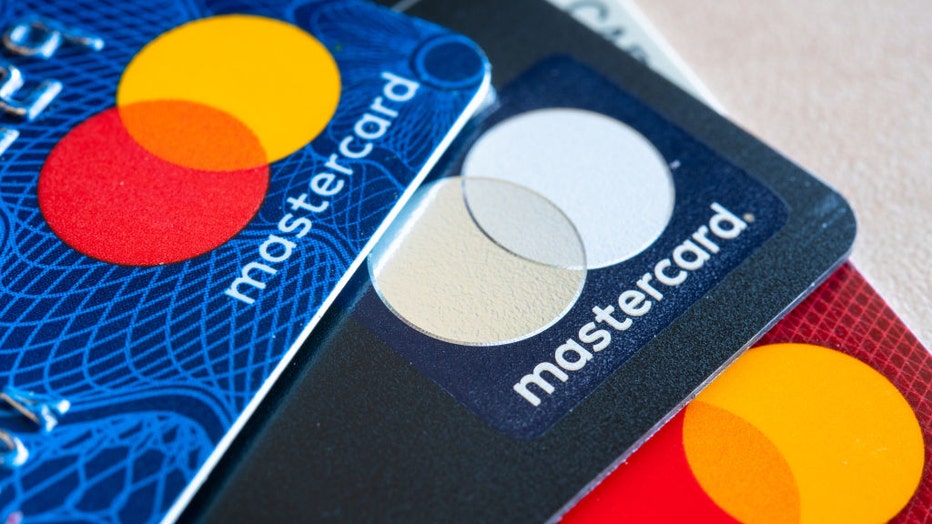Household debt hit record $17T last quarter as inflation squeezes Americans

FILE-A man sits at a table while paying bills. (Getty Images)
Americans racked up more debt at the beginning of 2023 – and a growing number of households fell behind on payments for several types of loans, according to a New York Federal Reserve report published Monday.
In the first three months of 2023, total household debt surged to a fresh record of $17.05 million, an increase of $148 billion, or 0.9% from the previous quarter. Balances are now $2.9 trillion higher than they were at the end of 2019, before the COVID-19 pandemic began.
Debt largely grew across the board.
Mortgage balances jumped by $121 billion to $12.04 trillion at the end of March, even as mortgage originations plummeted to the lowest level since 2014. Auto loan balances, meanwhile, rose by $10 billion in the first quarter – bucking the typical trend of balance declines in first quarters. Student loan debt also posted a modest increase, rising to $1.6 trillion.
DEBT CEILING SHOWDOWN RISKS TRIGGERING ‘SELF-INFLICTED’ RECESSION

In this photo illustration there are three Mastercard Credit Cards. (Photo Illustration by Roberto Machado Noa/LightRocket via Getty Images)
Credit card balances were the only form of debt that did not increase at the start of the year. Balances remained unchanged at $986 billion – the highest level on record – in the period from January to March, which is typically a time when consumers rein in spending after the holiday season and pay down debt.
For instance, over the past 10 years, credit card balances typically drop by 3% in the first quarter, according to the Fed, suggesting that high inflation is continuing to burden households financially.
"This is the first time in more than 20 years that we've seen a first-quarter increase," New York Fed researchers said during a call with reporters. "And I think that's something that's worth flagging here that we're still seeing. I think that credit card balances are really looking a little unusual right now."
FED RAISES INTEREST RATES A QUARTER POINT, HINTS AT POSSIBLE PAUSE
The rise in credit card usage and debt is particularly concerning because interest rates are astronomically high right now. The average credit card annual percentage rate, or APR, hit a new record of 20.33% last week, according to a Bankrate database that goes back to 1985. The previous record was 19% in July 1991.

A woman shops for groceries at a supermarket in Monterey Park, California on October 19, 2022. (FREDERIC J. BROWN/AFP via Getty Images)
If people are carrying debt to compensate for steeper prices, they could end up paying more for items in the long run. For instance, if you owe $5,000 in debt – which the average American does – current APR levels would mean it would take about 277 months and $7,723 in interest to pay off the debt making the minimum payments.
"It's been a really rough year for credit card holders," Matt Schulz, the chief LendingTree credit analyst, told FOX Business. "Even though the Fed seems to be taking their foot off the gas with interest rates, the unfortunate reality is credit card holders shouldn’t expect things to get a ton better anytime terribly soon, just because interest rates aren’t going down anytime soon."
While delinquency rates remain relatively small, there was an uptick in borrowers who are struggling with credit card and auto loan payments. As of March, about 2.6% of outstanding debt was in some stage of delinquency, up slightly from the 2.5% recorded the previous quarter. That remains 2.1 percentage points lower than the pre-pandemic level.
But the fact that there is any semblance of delinquency rates rising during such a strong labor market is concerning. If the unemployment rate begins to rise – which many economists expect due to the aggressive monetary policy tightening underway by the U.S. central bank – that could be worrisome for consumer debt and delinquency levels.
The rise in balances comes in the midst of the Federal Reserve's aggressive interest rate-hike campaign as it tries to crush stubborn inflation and cool the economy.

